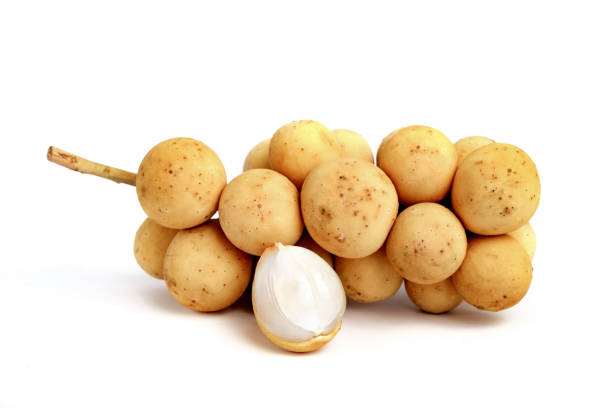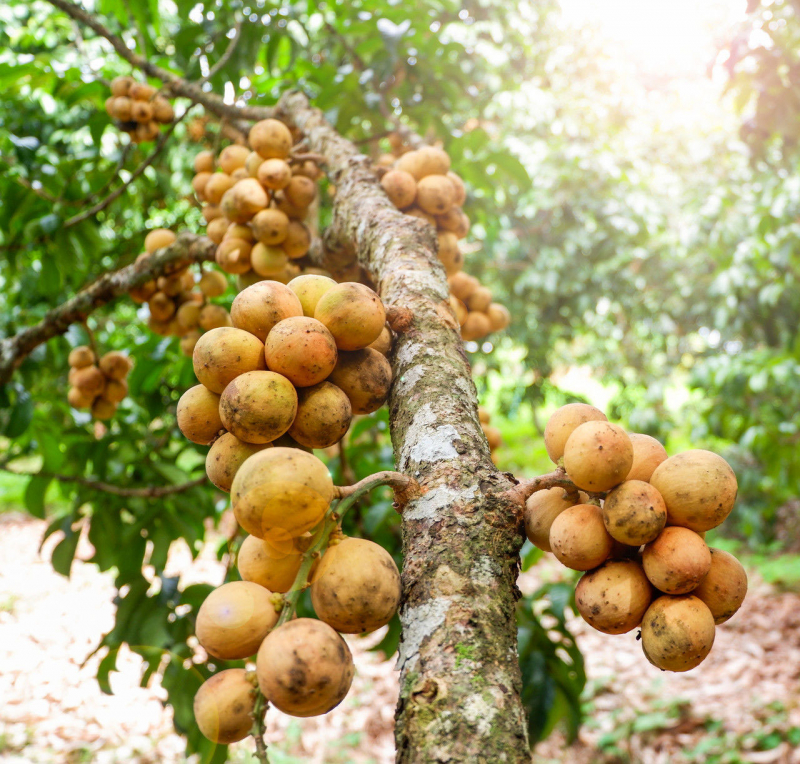Langsat
Lansium parasiticum, commonly known as langsat or Longkong in English; duku in Indonesian or dokong in Terengganu Malay, is a species of tree in the Mahogany family with commercially cultivated edible fruits. The species is native to Southeast Asia. Langsat is a nutritionally rich fruit containing many vital elements like proteins, carbohydrates, minerals, vitamins, and dietary fiber in abundance. It is rich in vitamin A, thiamine, and riboflavin, which are necessary for many body functions.
A shrub called langsat produces tiny delicious fruits. These fruits resemble potatoes from the outside, yet they have white flesh inside that contains bitter, inedible seeds. Duku is the name for the langsat kind that is greater in size. In Malaysia, Indonesia, Thailand, and Sumatra, langsat is commonly farmed and grows in clusters. It grows in India's southern Nilgiri highlands from April to September. These fruits taste a lot like grapes and have an acidic, sour, and sweet flavor combination. Some people compare its flavor to that of a pomelo. When ripe, its aril is juicy and transparent. The flavor of langsat is incredibly unusual and refreshing when fully mature.












